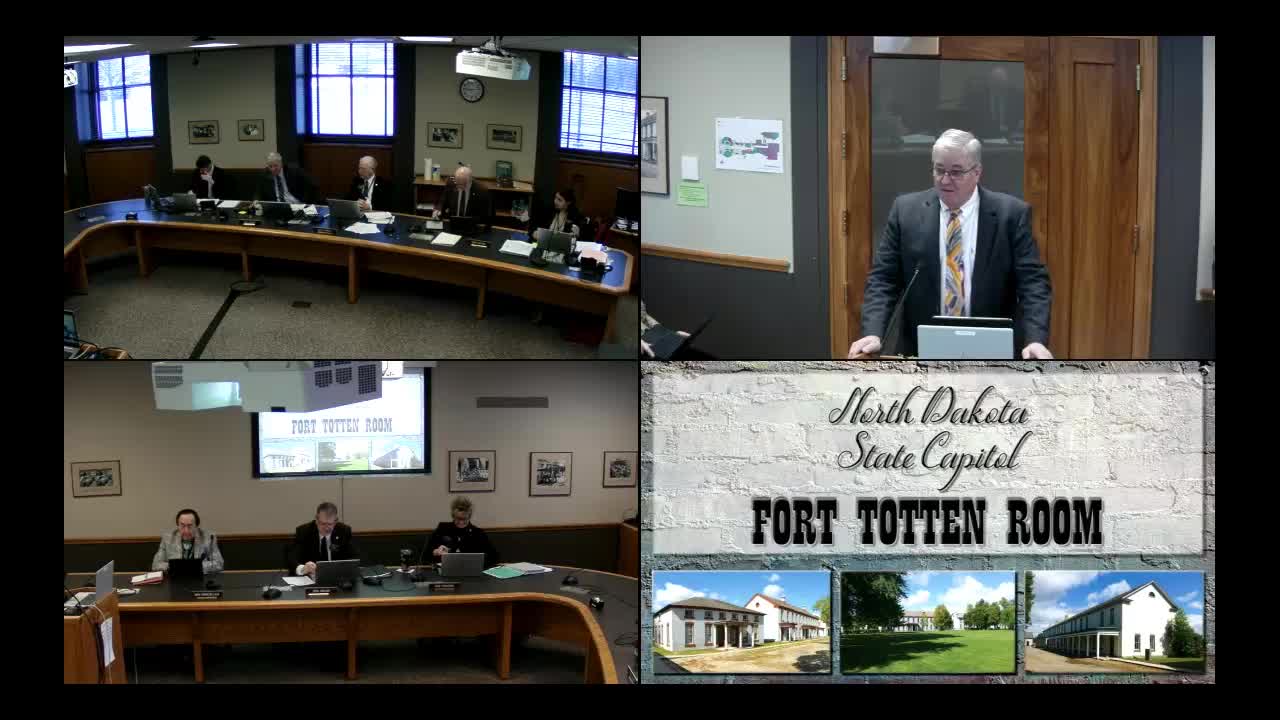Senate committee hears matching bills to treat residential lots with outbuildings as residential for tax purposes
Get AI-powered insights, summaries, and transcripts
Subscribe
Summary
Representatives testified on two similar bills (House Bill 11‑52 and House Bill 12‑32) to change Century Code language so residential lots with standalone garages or outbuildings in residential subdivisions are taxed as residential, not commercial, until evidence of commercial use exists.
The Senate Finance and Tax Committee heard testimony on two substantially similar measures — House Bill 11‑52 (Rep. Todd Porter) and House Bill 12‑32 (Rep. Grenache) — that would amend North Dakota Century Code language so that residential lots in residential subdivisions with outbuildings such as standalone garages be taxed as residential rather than automatically classified as commercial until a dwelling exists.
Representative Todd Porter (District 34, Mandan) said the measure was prompted by a Morton County subdivision outside Mandan where developers allowed owners to build garages before houses. Under current Century Code language, parcels without a dwelling can be assessed as commercial property; Porter said that practice led to parcels with only a garage being taxed at the commercial rate. He described the proposed change as local‑control friendly and limited in scope to genuinely residential tracts. Porter told the committee that in the specific Morton County case the owner stores personal vehicles and a boat in the garage and does not run a business from it.
Representative Grenache (authoring House Bill 12‑32) testified that Section 57‑02 of the Century Code lists residential‑lot definitions and that the bills aim to clarify that lots intended and platted for residential use should not be treated as commercial solely because a dwelling has not yet been built. He said developers and buyers sometimes build a garage first with the intention to add a house later, and that local review and covenants typically control long‑term use.
Committee members asked multiple questions about the division of authority between zoning and tax assessment. Representatives and senators clarified that zoning (planning) is a county or municipal function and determines permitted uses, while tax classification is made by the local tax assessor using definitions in the Century Code. Representative Porter explained that previous assessors in the Morton County example had treated the lots as residential until a new assessor reclassified them based on a literal reading of the code.
Public comment included Lanny Kenner (District 7), who said he had initial concerns about local control but, after hearing the testimony, was less opposed. Senators discussed waiting to hear a companion bill and consulting County Association officials before taking action; they also asked the Tax Department to compare the two bills and advise if language differences matter. No committee vote was recorded on either bill during this hearing; senators indicated they would consult the counties and the tax department and discuss whether to move one bill forward or adopt the other as the vehicle.
